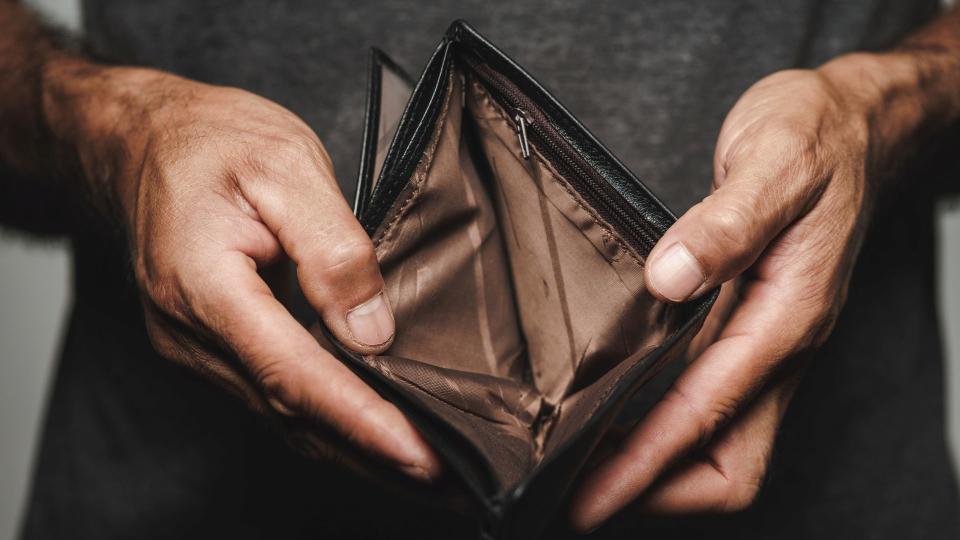Nearly One-Third of Americans Would Go Broke in a Week If They Lost Their Job, Study Finds

Most financial experts advise having three to six months’ worth of living expenses saved in an emergency fund. This will ensure that you’re covered in the case of a job loss or a catastrophic event that prevents you from being able to work. Unfortunately, it seems that very few Americans are willing or able to take this advice.
I Grew Up Poor: Here Are 8 Things I Never Waste Money On
Learn More: How To Get Cash Back on Your Everyday Purchases
A recent Clever Real Estate survey found that 51% of Americans would run out of money within a month if they lost their income, and 29% would run out of money in one week or less. Here’s a look at why so many Americans are on the verge of going broke.
Americans Don’t Have Sufficient Savings
If you don’t have enough savings to fall back on, you can easily go broke if you lose your job.
“Most Americans have dismal levels of savings,” said Matt Brannon, data writer at Clever Real Estate. “The last time savings were this low for this long was right before the 2008 financial crisis.”
The Clever survey found that only about half of Americans (56%) regularly put a portion of their paycheck into savings, and 44% said they pulled from their emergency savings in 2023.
“The lone bright spot here is that the question was worded, ‘If you lost your income today, about how long would the money you currently have last (assuming you don’t change your lifestyle)?’ So if they did lose their income, some would hopefully be able to last longer with spending cutbacks,” Brannon said.
Upside App: Is Getting Cash Back a Smart Way To Boost Your Savings?
Gen Z Is Most Likely To Go Broke If They Lost a Job
The survey found that 61% of Gen Zers would go broke in one month or less if they lost their job — a higher percentage than millennials (52%), Gen X (52%) or boomers (42%).
“Many Gen Z Americans aren’t yet in the workforce, and if they are, they’re disproportionately likely to be in low-earning service jobs,” Brannon said. “Plus, they haven’t had many years to build up savings.”
What makes the situation worse for members of this generation is that they are spending more than they are earning.
“About 57% of Gen Z Americans are in credit card debt,” Brannon said. “That group owes more in credit card debt ($4,461) than they have in emergency savings ($4,247). So basically, low pay and poor spending habits are Gen Z’s biggest financial problems.”
More From GOBankingRates
This article originally appeared on GOBankingRates.com: Nearly One-Third of Americans Would Go Broke in a Week If They Lost Their Job, Study Finds

 Yahoo Finance
Yahoo Finance 